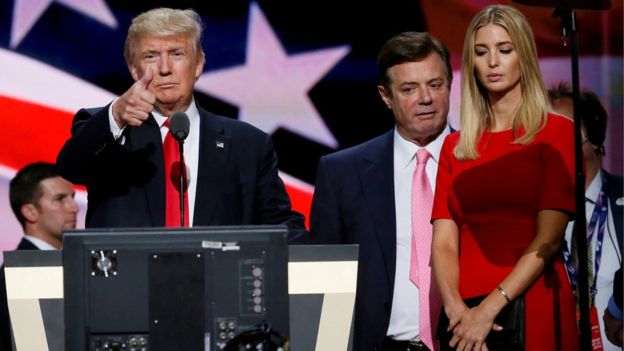Are Scientists failed to produce an early diagnostic test for Coronavirus?
Relations February 28, 2020 0 COMMENTS
No perfect and reliable vaccine has been so fa discovered by the medical scientist.
Coronavirus outbreak has wrapped up almost all the world. Spreading from China and hitting all other country is unprecedented and so rapid that the all world is shocked .
Scientists are working day and night to find out a proper treatment to kil the virus, but in vain. Even there is not a proper testified diagnostic test to catch the virus at its early stage.
Hong Kong is testing over a thousand people a day for coronavirus, while the US has only tested a total of 445 — partially because the CDC’s test didn’t work.

Federal health officials met with state and city public health labs on Wednesday to fix a crippling lack of options to diagnose the novel coronavirus, a shortfall driven by botched CDC testing kits. As a result, New York state and New York City are moving forward with developing their own test to detect the virus.
The lack of adequate testing capabilities was spotlighted on Wednesday evening, when the CDC announced delayed results of the first potential case of a person contracting COVID-19 from “community spread,” meaning they got sick without traveling to China or being exposed to anyone known to have the virus.
Early in February, the CDC released a US genetic test for the virus, sent to about 100 state and major city labs as well as overseas ones. Test kits contained enough ingredients to test a few hundred people for the novel coronavirus. The test proved unreliable in validation tests run by labs, however, leaving fewer than a dozen of the labs nationwide confident of the results.
The shortfall figured in the extended diagnosis of the Solano County, California, woman reported Wednesday night as the first person in the US with COVID-19 from community exposure. UC Davis Medical Center said that her test results were delayed because neither the county or state lab could run them, and because her symptoms did not initially meet federal diagnostic criteria. The test took four days to approve, and a week later, the CDC announced that the patient had tested positive.
California Gov. Gavin Newsom expressed frustration with the test shortfall at a news conference on Thursday.
The episode is spurring concern over US testing capabilities among public health officials, as cities and states gear up for possible outbreaks across the country. As the CDC scrambles to fix its original test, officials in New York have decided to push forward on developing their own.
The CDC did not respond to a request for comment for this story. On Thursday, the New York Times reported that the agency and other federal scientists would no longer be allowed to make public addresses about the outbreak without the approval of Vice President Mike Pence, following President Donald Trump appointing him to oversee all coronavirus-related responses.
The novel coronavirus is now responsible for more than 80,000 cases worldwide and over 2,800 deaths, with 60 cases in the US. South Korea has run about 30,000 tests, and Hong Kong is testing over a thousand people a day, while the US has only tested a total of 445.
“The case from yesterday is obviously giving the CDC a lot to consider in terms of revising those protocols so that more individuals will be tested with symptoms that might be identified as common pneumonia without a clear source,” said Mark Ghaly, secretary of the California Health and Human Services Agency, at the news conference.
On Thursday morning, Health and Human Services Secretary Alex Azar told a congressional committee that at least 40 labs could now use the suspect CDC test after a possible fix for the test, and suggested the number could double tomorrow.
But that estimate does not take into account the several days it will take to validate the results of the reconfigured tests, Association of Public Health Laboratories CEO Scott Becker told BuzzFeed News. Worse, labs in New York City and New York state found problems with the reconfigured test and have rejected the option to use it altogether. Instead, they are in discussions with the FDA to move ahead with creating their own genetic test for the coronavirus.
“This is not like flipping a switch,” Becker said. “These labs have to make absolutely certain that these tests are accurate and safe for the public.” Approval of the 40 labs using the reconfigured CDC test only came during a Wednesday meeting with the CDC, he said. Becker also expressed doubt about Azar’s prediction that 80 labs would be running the reconfigured test so quickly.
Washington State Secretary of Health John Wiesman told BuzzFeed News that the state hoped to perform the reconfigured tests “hopefully in a matter of days,” following the validation testing now underway.
The original CDC test relied on three “primer” sets, small snippets of DNA that match the unique sequences of the coronavirus, to check for its presence in a patient swab sample. Labs widely found the third primer in the test kit did not give accurate readings. On Wednesday, the CDC gave permission for labs finding the other two primers reliable to proceed by throwing out the third one. But the New York labs and a few others have claimed that the first primer was also unreliable.
New York City Department of Health and Mental Hygiene Deputy Commissioner Demetre Daskalakis confirmed that New York City and New York State public health labs found problems in their use of the original CDC test kit. The FDA gave the labs permission to work on their own genetic test for the virus, an unprecedented move for state labs, and they are first in line for a brand-new CDC test still under development.
“The only question is which will come on line first,” Daskalakis said.
He added that New York is not solely dependent on the tests for monitoring outbreaks of the coronavirus, maintaining hourly reports of pneumonia and flu arrivals at emergency rooms. A sudden spike in those numbers in a cluster would trigger a response even before test results, he said.
“If we are starting to see a lot of pneumonia cases at a time when influenza is trending down, we would act very quickly to find out what is going on.”
The testing shortfall points to the underfunding of public health nationwide, said Becker, with lawmakers pouring money into crises, such as Zika, MERS, and now COVID-19, and then cutting budgets in a boom-and-bust cycle that leaves labs and local agencies playing catch-up in every new outbreak.
RELATED ARTICLES
Recent Posts
- Big arrangements are made by a nervous Harris campaign to secure a close victory.
- Assault on peace: Hammas deadliest attack on israle on Oct 07 , instigated Midle East Crisis:
- Israel marked “solemn” anniversary commemorating 7/10 deadly attacks:
- Trump impeachment: Trump lashed out over his impending impeachment in an irate letter to Nancy Pelosi, accusing her of declaring “open war on American democracy”.
- hotness breaks its records in Australia :


